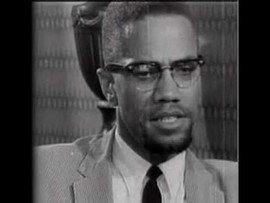|
Written by Serie McDougal
One of the unsung solutions in Black higher education is the role that Black Culture Centers (BCC) play in the college experiences of Black students. This is especially true for Black students on campuses, where they are underrepresented and/or in the numerical minority. On these campuses Black students face marginalization, social, isolation, underrepresentation in curriculum, and lack of cultural understanding. This can result in diminished sense of school-pride and spirit, and sense of belongingness. According to Patton (2006) Black students explain that they are sometimes stereotyped and treated in one of four ways: “as the spokesperson for all black people; as the academically underprepared beneficiary of affirmative action; as the angry, defensive minority; or as the invisible student” (p.2). In one of the few studies on the impact of Black Culture Centers, Patton (2006) interviewed students who participated in BCCs. She explains how BCCs benefit students in many ways, including increased opportunities for involvement and preparation for student leadership, a richer understanding of their community, enhanced development of their black identity, increased pride in their shared history, and an enrichment of strategies for thriving in college. INVOLVEMENT Students reported that the Black culture center’s activities and workshops taught them leadership and organization skills. They also provided them opportunities for leadership, and served as a pathway to membership in campus wide organizations. COMMUNITY Students reported that the Black culture center provided them with culture specific services that were geared toward their needs and interests and styles. The center provided them with an opportunity to form social relationships with other students and faculty and staff. They felt that faculty and staff at the centers were like mother and father figures and their peers, like family members. HISTORICAL PRIDE AND IDENTITY Students reported that the Black culture center provided them a place to learn about their culture and identity. They believed that the BCC was a place they could learn about and discuss Black issues and current ideas. SELF-PRESERVATION AND MATTERING Students felt that the BCC was a place they could go and feel a sense of comfort and relief. For them, they could speak freely and not feel treated as strange at the Black culture center compared to the larger campus. Black Culture Centers are able to accomplish these outcomes through a range of services, including: Pre College Programs
OPPOSITION AND MISCONCEPTIONS ABOUT BCCs Many BCCs face misconceptions. The more prominent of them are that they foster separatism, are only for Black students, and that they are only social (Patton, 2006). However, these misconceptions are based on a lack of understanding of BCCs. BCCs allow students to engage their institutions in ways that they are comfortable with, without having to check their cultures at the door. BCCs are for all students on campus who are interested in learning about Black cultures and themselves in relation to Black cultures. Lastly, as illustrated above BCCs offer a great deal of services beyond social ones, including skill building, academic services, and career/graduate school preparation. BCCs also face funding cuts and attempts to convert into multicultural centers. These options are based on under-valuing the role that ethnic specific centers play and lack of investment in what it takes to achieve educational equity. THE FUTURE OF BCCs According to Cooper (2014) BCCs are intent on becoming more academic in focus (2014), engaging in academic services, relationships with academic programs, housing libraries, and computer labs. The National Association for Black Culture Centers is also implementing an accreditation process for effectiveness in Black Culture Centers (see Appendix A) to aid in the process. According to Cooper (2014) “Yale's center is working with the archivist of the campus library to preserve artifacts, pictures and memorabilia, and provide electronic access to those materials” (p.7). Some BCCs are becoming involved in tracking and monitoring recruitment and retention rates and experiences at their institutions (Walker, 2007). There is also a recent push to collect hard data on the impact of their centers on students, given the general lack of data. WORKS CITED Cooper, K. J. (2014). Black culture centers are embracing multiculturalism and intellectual conversation. Diverse: Issues In Higher Education, 31(15), 6-9. Patton, L. D. (2006). Black culture centers: Still central to student learning. About Campus, 11(2), 2-8. Walker, M. A. (2007). The evolution of Black culture centers. Diverse: Issues in Higher Education, 23(24), 16-17. APPENDIX A: Criteria for Center Accreditation I. Institutional Commitment and Responsibilities A. There should be a direct reporting connection of Center to chief academic or student activities administrator. B. Center should be integral part of institution’s educational and environmental culture.
A. Center must be institutional member of ABCC. B. Center must successfully complete Preliminary Information Form, self-study and peer review processes. Completion of Preliminary Information form and acceptance by the Council. Completion of self-study process and acceptance by the Council. Successful peer-review process of the Council’s visiting team. C. Center must meet minimal standards outlined in the ABCC handbook, including III and IV of this Accreditation Outline. III. Initial Membership A. Center must be institutional member of ABCC. B. Center must successfully complete the ABCC accreditation process. C. Center has probationary membership of one year. D. Center’s institution must demonstrate ability to meet guidelines of institutional commitment and responsibilities. E. Center must demonstrate evidence of meeting conditions of eligibility. IV. Center’s Missions and Purpose A. Center should demonstrate clear evidence of meeting the following related missions identified in the ABCC Constitution:
A. Center must demonstrate effectiveness in the following areas:
A. Qualifications of Director(s) and other professional staff, must be met.
0 Comments
 Written by Serie McDougal Malcolm X once compared racist conservatives to wolves who show their teeth and do not try to hide the harm they mean to Black people. But, he also explained how the racist liberal approach was much more like that of the fox. While the wolf shows its teeth and snarls, the fox shows its teeth and pretends to be smiling. The fox, as depicted in most folk tales, is always more deceptive and dangerous because its ill-will remains hidden behind good intentions. The Arizona based conservative attack on Ethnic Studies was very direct in its rejection of the core values of Ethnic Studies, depicting it as a threat to national unity.  The Arizona style approach used to attack Ethnic Studies would not work in San Francisco. Nevertheless, the good intentions of San Francisco State University are embodied in the values of its mission statement, which touts a commitment to diversity, social justice, and community. The College of Ethnic Studies at San Francisco State University is founded on several principles including:
 Evidence based research demonstrates the positive effects that Ethnic Studies curriculum has on student academic achievement, student engagement, graduation rates, and self-efficacy. Under the auspices of “a new budgetary discipline”, the current proposal to significantly cut the budget of the College of Ethnic Studies is a reflection of the value that the university leadership currently places on diversity, social justice, and community. The university is claiming that the college spends too much in its efforts to serve underserved students. Not at all ironically, as the budget allocation for the College of Ethnic Studies is diminished, the University is currently planning to resource its growing athletic program. The proposed cuts would result in a 40% loss of Ethnic Studies courses, making it difficult for students to take the courses they would need to graduate. This would also impact our departments’ ability to offer viable degree granting programs. These courses also play a big role in diversifying the university’s curriculum. Ethnic Studies lecturers would lose their positions, meaning the college would lose 50% of its teachers. The Cesar Chavez Institute, which is dedicated to research and community empowerment, would be shut down. The graduate program would no longer be able to offer courses or have a coordinator. The Ethnic Studies Resource and Empowerment Center which advises students on their career goals, academic goals, and funding opportunities would also be shut down. Ethnic Studies work-study student positions would be eliminated. Lastly, professors would get no release time or sabbaticals. While the approach taken in Arizona was to institute a ban on Ethnic Studies, the budget proposal of the president and provost at San Francisco State is fashioned to economically bleed the one and only College of Ethnic Studies to the point that it can no longer function. As Malcolm X urged us to remember, the fox and the wolf come from the same family of canines, just as attacks on Ethnic Studies come in many forms but are fixed on the same objective. They are a part of the same racist conservative political agenda to roll-back the democratization of higher education that students fought for in the 1960s. The true fear of Africana Studies or any of the Ethnic Studies departments, is not their celebration of diversity, it’s the fact that they equip students with the intellectual and academic resources and consciousness to go out into the world, challenge oppression, inequity, and shift the balance of power. With that said, the President of the University’s office has a fundamental misunderstanding of the climate of the times that we currently live in. This would be the time to help them understand that the College of Ethnic Studies will settle for no less than an increase in funding for its work. Without the College of Ethnic Studies, the university’s fund raisers could not move about the state and country bragging about the unique diversity of its campus. With less money, the College of Ethnic Studies’ students, faculty, programs, and institutions have done a disproportionate share of the work of serving underserved populations because it’s what we love to do. When you hear the president make a claim about how diverse the campus is in public from now on, he should be met with a resounding chorus of “40%!!!”, because that’s how many Ethnic Studies courses would have to be cut to balance the budget he has proposed. Our students, faculty and supporters are ready to battle with whatever may come, wolves or foxes alike. Anyone can send a letter advocating on behalf of the college to: President Leslie Wong: ADM 562 – (415) 338-1381 – president@sfsu.edu Provost Sue Rosser: ADM 455 – (415) 338-1141 – srosser@sfsu.edu |
Archives
April 2022
Categories
All
|
 RSS Feed
RSS Feed